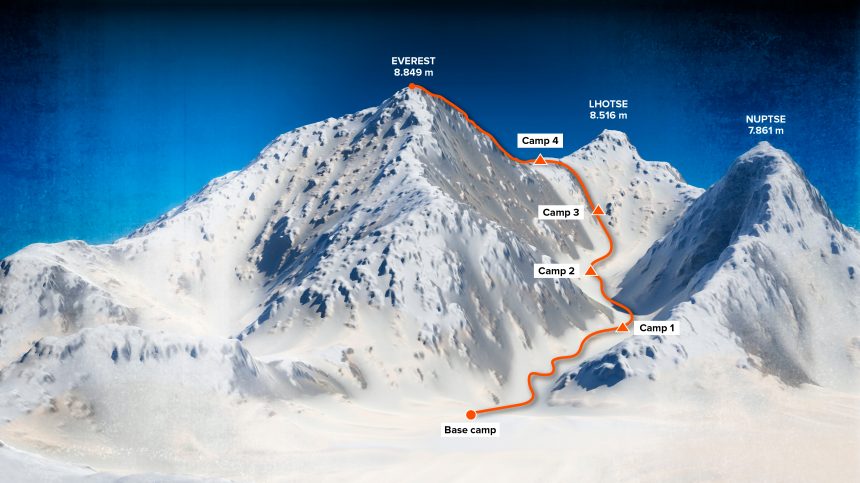Ahead of the 2024 Mount Everest season, Nepal has announced a new safety measure requiring all climbers to rent and carry tracking chips during their expeditions. The move aims to improve climber safety and streamline rescue operations in the event of emergencies high on the world’s tallest peak.
How the Tracking System Works
The small tracking chips, utilizing GPS (Global Positioning System) technology, will be sewn into climbers’ jackets. They will transmit real-time location data to authorities, enabling quicker and more efficient responses in case of accidents, avalanches, or altitude-related health issues.
Reaction from the Climbing Community
The new requirement has been largely welcomed by the mountaineering community. Many experienced climbers have supported the use of tracking technology in recent years, recognizing the potential life-saving benefits it offers.
Safety Concerns on Everest
Mount Everest, reaching 8,849 meters (29,032 feet), poses significant risks to climbers facing unpredictable weather, avalanches, and extreme altitudes. Overcrowding and inexperience have also contributed to a rise in fatalities on the mountain in recent years.
Comments from Authorities
Rakesh Gurung, director of Nepal’s Department of Tourism, emphasizes the mandate’s aim: “It will cut down on search and rescue time in the event of an accident.” He adds that climbers will pay a small fee of around US$10–15 for the chip rental. Upon their safe return, climbers will return the chips to the government for reuse.
Nepal’s Reliance on Mountaineering Tourism
Mountaineering is a major driver of tourism revenue for Nepal. Issuing climbing permits for Mount Everest alone brings in millions of dollars annually. This new regulation demonstrates the government’s commitment to balancing the economic importance of climbing with the crucial responsibility of ensuring climber safety.
Beyond Everest
While the regulation is initially focused on Mount Everest, there’s potential for it to be expanded to other popular, high-altitude peaks in Nepal, further enhancing safety measures across the Himalayan nation’s world-renowned trekking and climbing routes.








